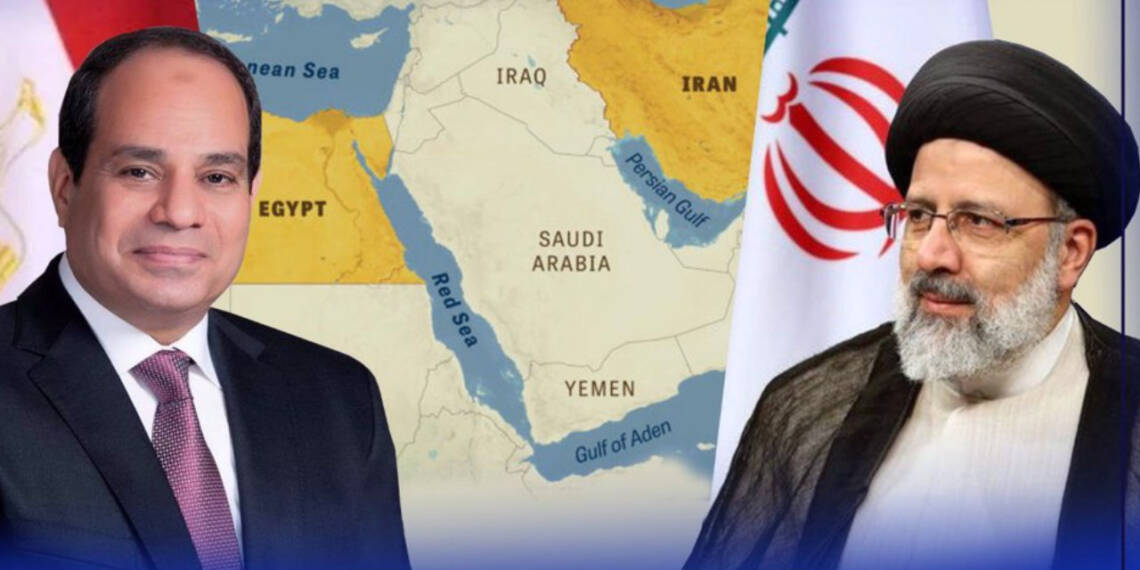The Biden administration is confronted with formidable challenges in managing American interests within the Middle East. The once-pervasive influence that the United States wielded in the region has visibly waned.
This is exemplified by several noteworthy developments. Firstly, OPEC allies are displaying discontent with the U.S., opting to implement additional oil production cuts, potentially affecting American energy interests. Secondly, Saudi Arabia is applying pressure on the U.S. for nuclear concessions, indicating strains in their bilateral relationship.
Thirdly, Lebanon is raising questions regarding the necessity of a new U.S. embassy, hinting at concerns about the perception of U.S. involvement in the region. Lastly, Iran is employing coercive tactics, detaining U.S. citizens and leveraging them as bargaining chips for financial concessions. In sum, the Biden administration confronts a complex and demanding Middle East landscape, wherein American influence undergoes scrutiny and faces pressure from diverse regional actors.
However, there is one more nation that faces difficulties with Biden, Egypt. President Abdel Fateh El-Sisi grapples with a withheld $235 million payout from the U.S. Now, as tensions simmer between the two nations, a surprising announcement has emerged.

Egypt and Iran Join Hands: The Economic Angle
Egypt and Iran, former rivals, are joining forces. The prospect of Iran-Egypt reconciliation was once deemed nearly impossible, but it is now becoming a reality.
In a significant development, Iranian Finance Minister Ehsan Khandouzi embarked on a historic journey to Cairo, marking the first visit of an Iranian finance minister to Egypt in nearly a decade. His visit coincided with the annual meeting of the Asian Infrastructure Investment Bank (AIIB), where he held a substantial meeting with his Egyptian counterpart, Mohamed Maait.
During their discussions, Khandouzi conveyed Iran’s strong commitment to strengthening relations with neighboring and regional nations. He underscored the immense potential for collaboration between Iran and Egypt across various domains. This included areas such as the AIIB, the Islamic Development Bank, the establishment of a joint bank, cooperation in shipping, pharmaceutical technology, and medical equipment exchange.
Minister Maait, on his part, stressed Egypt’s keen interest in the proposals put forth by his Iranian counterpart. He expressed Egypt’s desire to enhance relations with Iran and expressed hope for an imminent improvement in bilateral ties.
Khandouzi later revealed that discussions had also touched upon plans to increase the capital of the Iran-Egypt bank in the near future. He expressed optimism that this meeting with Maait would serve as a catalyst for rejuvenating cooperation and furthering Iran’s economic diplomacy endeavors.
The Iranian finance minister’s visit to Egypt was accompanied by a high-level trade and economic delegation, demonstrating the seriousness of both nations in pursuing economic collaboration. This diplomatic development signals a positive shift in Iran-Egypt relations, despite a historical backdrop of severed ties dating back to 1980.
Read More: Suez Anxiety? Biden Threatens Egypt as it joins BRICS
No More Rivals: End of a 50 year old Problem
Iran and Egypt, two prominent regional powers in the Middle East, have a history marked by rivalry and competition for influence. Their differing visions for the Middle East’s political landscape, coupled with religious divides, have fueled tensions.
Religiously, Iran is predominantly Shia Muslim, while Egypt is predominantly Sunni Muslim, contributing to historical Sunni-Shia tensions. This divide has exacerbated their rivalry as each nation has supported groups and governments aligned with their respective religious affiliations. Their opposition in regional conflicts, such as the Syrian and Yemeni civil wars, has led to divergent policies and allegiances, further straining relations.
A pivotal moment in their estranged relationship occurred in 1980 when Egypt severed diplomatic ties with Iran after the Iranian Revolution and Iran’s support for Egypt’s Islamic Revolution. This rupture endured for decades, leaving behind a legacy of mistrust.
Egypt’s signing of the Camp David Accords in 1978 and the subsequent peace treaty with Israel in 1979 significantly contributed to the rift. Iran, a vocal critic of Israel, opposed diplomatic normalization in the region, further deepening the divide between the two nations.

Despite this history of animosity, recent diplomatic overtures and discussions about economic cooperation between Iran and Egypt suggest a potential thaw in relations, highlighting the evolving dynamics of the Middle East’s geopolitical landscape.
Restoration of Ties: Iran Predicted it Way Ago
The willingness to explore economic ties and cooperation in various sectors reflects a shared desire to foster regional stability and economic growth in a complex geopolitical landscape. The historical animosity between Cairo and Tehran has undergone a transformation, driven by shared challenges that demand diplomatic solutions.
While Iran grapples with obstacles presented by the Biden administration, particularly in its efforts to rejoin global oil markets, tensions persist in the Strait of Hormuz. Tehran has been vocal in its call for the U.S. to exit the Middle East, concurrently mending ties with nations like Saudi Arabia and Syria. The latest addition to this diplomatic shift is Egypt, marking a notable development.
When considering the BRICS connection, this rapprochement becomes even more intriguing. Both Iran and Egypt are set to become part of BRICS in 2024, suggesting a deepening of economic cooperation on the horizon.
Read More: The B in BRICS stands for Oil Barrels
While this emerging alliance may not be welcomed by the Biden administration, it presents challenges for the United States. The changing dynamics in the Middle East, coupled with strengthened economic ties and affiliations in BRICS, signify a shifting landscape that will likely have implications for regional and global politics.
Watch More:








